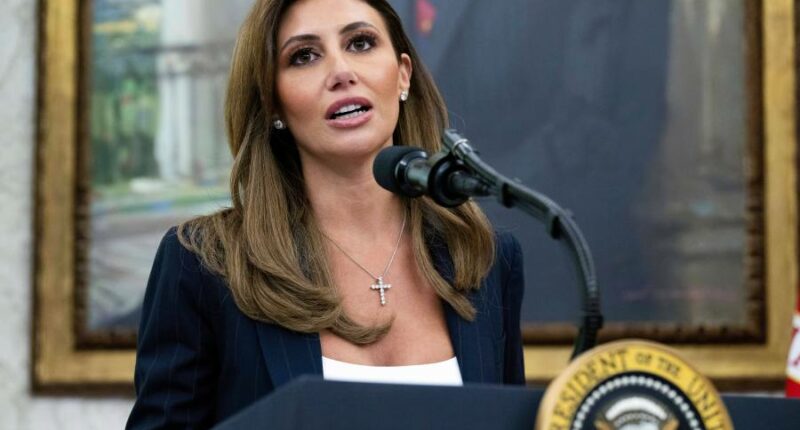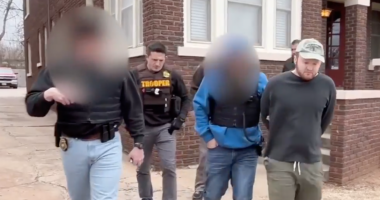Share this @internewscast.com

PHILADELPHIA (AP) — On Monday, the federal appeals court will deliberate on the legitimacy of Alina Habba’s appointment as the chief federal prosecutor in New Jersey. Previously an attorney for former President Donald Trump, Habba’s role has been under scrutiny since earlier this year.
The 3rd Circuit Court of Appeals, convening in Philadelphia, is examining the circumstances of Habba’s appointment. In August, a lower court described her selection as a result of “unprecedented legal and personnel maneuvers,” concluding she was not lawfully serving as New Jersey’s U.S. attorney.
The judge’s ruling indicated that any actions Habba took from July onward might be nullified. However, the implementation of this order was paused to allow the U.S. Justice Department to file an appeal.
According to government briefs submitted before the hearing, Habba’s tenure is legally justified under a federal provision that allows for the appointment of a first assistant attorney, a position she was given during Trump’s presidency.
This scenario mirrors a situation in Nevada, where a federal judge dismissed the administration’s nomination for U.S. attorney in that state.
Judge Matthew Brann’s ruling in the Habba case emerged after those facing federal charges in New Jersey questioned the legitimacy of her role. They sought to have the charges dismissed, claiming she lacked prosecutorial authority after her 120-day interim term had concluded.
Habba was Trump’s attorney in criminal and civil proceedings before he was elected to a second term. She served as a White House adviser briefly before Trump named her as a federal prosecutor in March.
Shortly after her appointment, she said in an interview she hoped to help “turn New Jersey red,” a rare overt political expression from a prosecutor, and said she planned to investigate the state’s Democratic governor and attorney general.
She then brought a trespassing charge, eventually dropped, against Newark Mayor Ras Baraka stemming from his visit to a federal immigration detention center.
Habba later charged Democratic U.S. Rep. LaMonica McIver with assault stemming from the same incident, a rare federal criminal case against a sitting member of Congress other than for corruption. McIver denied the charges and pleaded not guilty. The case is pending.
Questions about whether Habba would continue in the job arose in July when her temporary appointment was ending and it became clear New Jersey’s two Democratic U.S. senators, Cory Booker and Andy Kim, would not back her appointment.
With her appointment expiring, federal judges in New Jersey exercised their power under the law to replace Habba with a career prosecutor who had served as her second in-command.
U.S. Attorney General Pam Bondi then fired the prosecutor installed by the judges and renamed Habba as acting U.S. attorney. The Justice Department said the judges acted prematurely and said Trump had the authority to appoint his preferred candidate to enforce federal laws in the state.
Brann’s ruling said the president’s appointments are still subject to the time limits and power-sharing rules laid out in federal law.

















